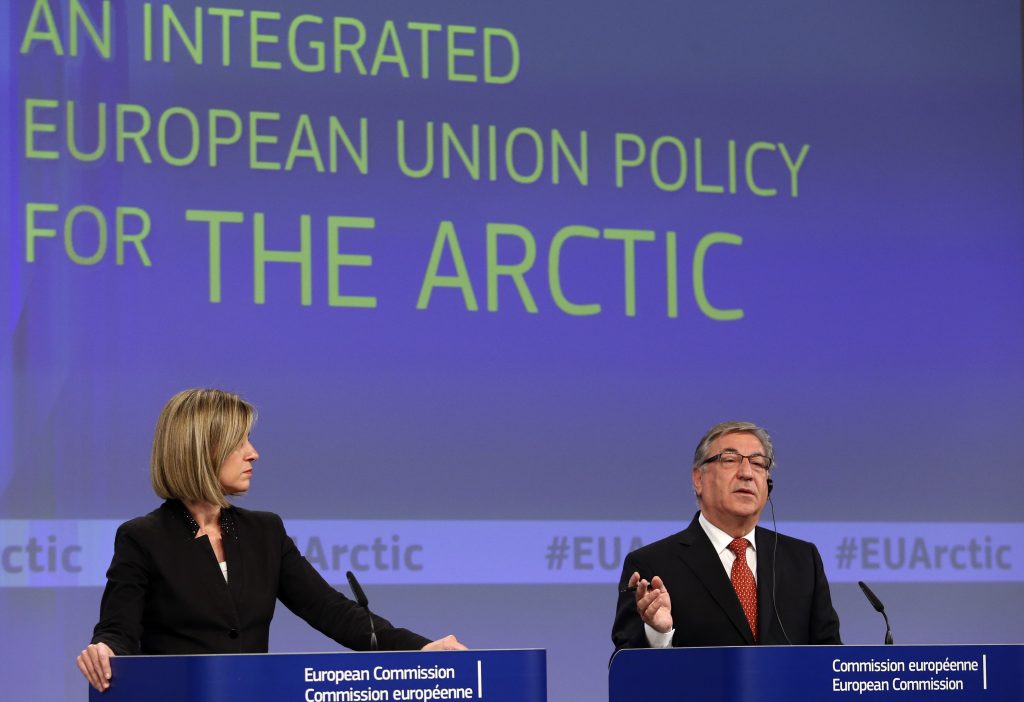An updated EU Arctic policy is expected next year
“We believe there should be more EU in the Arctic and more Arctic in the EU.”

Officially, an updated European Union Arctic policy has been on the cards, if only tentatively, since December. It was then that the foreign ministers from the union’s 27 member states instructed the European Commission, the bloc’s executive arm, to “initiate a process” to determine whether the current policy, published in 2016, needed updating.
On Monday, the commission announced that it had decided it did. Among its objectives for 2021, it lists presentation of an updated EU policy towards the Arctic, describing the region as “particularly exposed to climate change and environmental pressures and its economic and security impact.”
The policy update does not come out of the blue. First, it is one of a number of initiatives the self-styled “geopolitical” commission will use to live up to what it calls a “mandate to ensure a stronger Europe in the world.”
This mandate stems in large part from the EU’s size: It has a collective population of 500 million and an economic output of €16 trillion ($19 trillion), which, by some estimates, makes it the largest economy in the world. Brussels would like to use that as a lever.
When it comes to the Arctic, for example, the EU sees itself as a natural market for resources shipped from, as well as through, the region, and it believes it can use its economic clout to make sure firms operating there meet European environmental and social standards. Politically, it believes Europe offers an alternative to America, Russia and China in the Arctic as well as elsewhere.
Serious discussions of whether the EU should revamp its Arctic policy began last autumn, in connection with publication of a study that called for the EU to play a more assertive role in the region. Its conclusions, however, echoed the criticism that has dogged the current iteration of the EU’s Arctic policy ever since it was published.
[For the EU’s new Arctic envoy, low tension is job No. 1]
Those who want a new EU policy say the current one, which focuses mainly on the environment and sustainable development, has too little to do with foreign policy (addressed under the rubric of international cooperation) for it to serve as an adequate guide for the union at a time when issues affecting the region had become, in the foreign ministers’ eyes, “of a global nature.”
A more vocal EU Arctic policy will have to strike a balance. The current policy already recognises the primacy of Arctic states in the region. It also hails multilateralism, a cornerstone of the European project. A revised policy would be unlikely to abandon either. Indeed, the commission makes clear that advancing its interests is inseparable from standing up for a “rules-based” order of the sort that already underpins relations in the region.
Nor is it likely to lessen its focus on softer issues; the commission has made addressing global warming a priority, in part for simply for the sake of slowing climate change, but also because it believes there are economic gains to be had by investing in technologies that can help reduce carbon pollution. Likewise, the commission sees climate change as a potential threat to security.
[EU seeks input ahead of Arctic policy update]
This does not mean Brussels is unwilling to act on its own in the region. Member states Sweden and Finland have territory in the Arctic, and the EU is obliged to involve itself there the same way it is involved in any other part of the union. But national and regional leaders have, in recent years, lobbied for more EU activity in their areas and updated policy can be expected to suggest a deeper commitment.
“We believe there should be more EU in the Arctic and more Arctic in the EU,” Antti Rinne, Finland’s previous prime minister, said in 2019, as the new commission was being assembled.